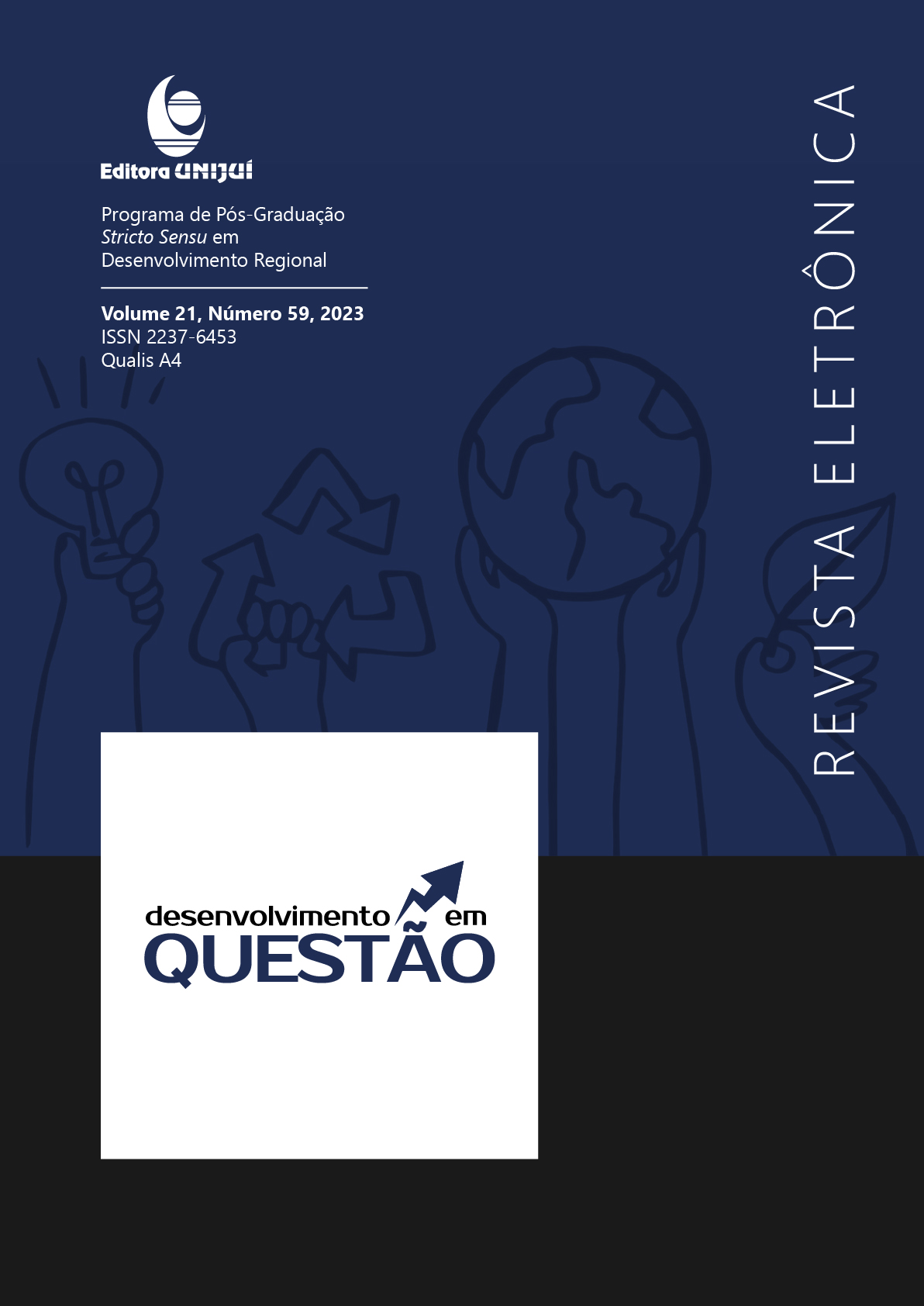Multidimensional index of territorial heritage activation: The human and intellectual dimension and its components
DOI:
https://doi.org/10.21527/2237-6453.2023.59.14578Keywords:
territorial heritage; methodology; index of the human and intellectual dimension; territorial developmentAbstract
The work aimed to develop the methodological bases of the Human and Intellectual Dimension Index of Territorial Heritage (IDHI), operationalizing the variables that compose it from a scale. The methodology was based on the use and adaptation of the Likert Scale, with five points, parameterizing the indicators on human and intellectual development that integrate this dimension of territorial development. As a result, we have an index that can be applied to measure the human and intellectual dimension of the territorial heritage in a scientific and multifaceted way, but at the same time being flexible and adaptable to the empirical realities and specificities of the territories in which it will be used. This index can be used by researchers from different territories and by managers of public policies who are concerned with measuring the territorial heritage in its human and intellectual aspects.
References
DALLABRIDA, V. R.; ROTTA, E.; BÜTTENBENDER, P. L.; DENARDIN, V. F.; ARENHART, L. Categorias conceituais e pressupostos metodológicos convergentes com a abordagem territorial. Guaju – Revista Brasileira de Desenvolvimento Territorial Sustentável, v. 7, n. 1, p. 43-80, jan./jun. 2021.
DALLABRIDA, V. R. Patrimônio territorial: abordagens teóricas e indicativos metodológicos para estudos territoriais. Desenvolvimento em Questão, Ijuí: Editora Unijuí, v. 18, n. 52, jul./set. 2020.
IBGE. Desigualdades sociais por cor ou raça no Brasil. In: Estudos e Pesquisas. Informação Demográfica e Socioeconômica, n. 48, 2. ed. 2000. Disponível em: https://biblioteca.ibge.gov.br/visualizacao/livros/liv101972_informativo.pdf. Acesso em: 22 mar. 2023.
INPI. Instituto Nacional da Propriedade Industrial. Brasília, DF. Disponível em: https://www.gov.br/inpi/pt-br. Acesso em: 19 abr. 2023.
MUELLER, A. A.; MAIA, C. M.; GAZOLLA, M.; SILVA, S. P.; LUTZER, A. V. B.; TABASCO, J. J. P. Abordagem territorial do desenvolvimento e sua dimensão humana e intelectual: uma proposição teórico-metodológica à luz de Amartya Sen e Jhon Thomson. Revista Brasileira de Gestão e Desenvolvimento Regional, v. 18, p. 203, 2022.
PLATAFORMA SUCUPIRA. Coordenação de Aperfeiçoamento de Pessoal de Nível Superior (Capes). Disponível em: https://sucupira.capes.gov.br/sucupira/. Acesso em 19 abr. 2023.
SEN, A. The Idea of Justice. London: Penguin Books, 2010.
SEN, A. Desenvolvimento como liberdade. Tradução Laura Teixeira Motta. São Paulo: Companhia das Letras, 2000.
SEN, A. Inequality Re-examined. Oxford: Clarendon Press, 1992.
SEN, A. The Standard of living. In The Tanner Lecture on Human Values. Delivered at Stanford University. In: SEN, A. et al. The Standard of Living: The Tanner Lectures on Human Values. Cambridge: Cambridge University Press, 1987.
SEN, A. Well-Being, Agency and Freedom: The Dewey Lectures. The Journal of Philosophy, v. 82, n. 4, p. 169-221, Apr. 1985.
SEN, A.; KLIKSBERG, B. As pessoas em primeiro lugar: a ética do desenvolvimento e os problemas do mundo globalizado. Rio de Janeiro: Companhia das Letras, 2010.
STEWART, F. Por qué persisten las desigualdades de grupo? Las trampas de la desigualdad horizontal. In: JIMÉNEZ, Félix (ed.). Teoría económica y desigualdad social. Exclusión, desigualdad y democracia. Homenaje a Adolfo Figueroa. Lima: Fondo Editorial de la PUC-Peru, 2010. p. 269-298.
STEWART, F.; GRAHAM; B.; LUCA M. Why Horizontal Inequalities Matter: Some Implications for Measurement. Crise Working Paper 19, University of Oxford, 2005. Disponível em: http://www.crise.ox.ac.uk/pubs/workingpaper19.pdf. Acesso em: 26 out. 2021.
Downloads
Published
How to Cite
Issue
Section
License
Copyright (c) 2023 Desenvolvimento em Questão

This work is licensed under a Creative Commons Attribution 4.0 International License.
By publishing in Revista Desenvolvimento em Questão, authors agree to the following terms:
All works are published under the Creative Commons Attribution 4.0 International License (CC BY 4.0), which allows:
Sharing — to copy and redistribute the material in any medium or format;
Adaptation — to remix, transform, and build upon the material for any purpose, even commercially.
These permissions are irrevocable, provided that the following terms are respected:
Attribution — authors must be properly credited, a link to the license must be provided, and any changes made must be indicated.
No additional restrictions — no legal or technological measures may be applied that legally restrict others from doing anything the license permits.
Notices:
The license does not apply to elements that are in the public domain or covered by legal exceptions.
The license does not grant all necessary rights for specific uses (e.g., image rights, privacy, or moral rights).
The journal is not responsible for the opinions expressed in the articles, which are the sole responsibility of the authors. The Editor, with the support of the Editorial Board, reserves the right to suggest or request modifications when necessary.
Only original scientific articles presenting research results of interest that have not been previously published or simultaneously submitted to another journal with the same purpose will be accepted.
Mentions of trademarks or specific products are intended solely for identification purposes and do not imply any promotional relationship by the authors or the journal.
License Agreement (for articles published from 2025 onward): Authors retain the copyright to their article and grant Revista Desenvolvimento em Questão the right of first publication.











